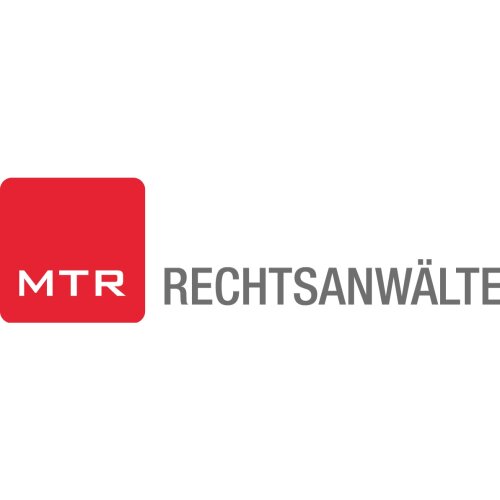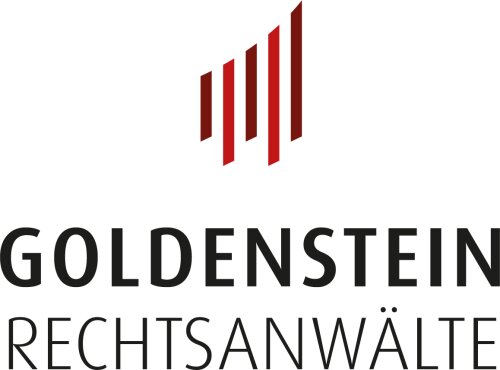Best Private Equity Lawyers in Berlin
Share your needs with us, get contacted by law firms.
Free. Takes 2 min.
List of the best lawyers in Berlin, Germany
About Private Equity Law in Berlin, Germany
Private equity involves investments made into private companies or the acquisition of public companies to take them private. In Berlin, the sector is a dynamic and essential part of the financial and business landscape. Berlin is recognized as a hub for innovation and startups, attracting both domestic and international private equity funds. The legal framework in Berlin, and Germany as a whole, is robust, ensuring that transactions are conducted transparently and with due diligence. In this city, private equity lawyers navigate a mixture of German commercial law, tax regulations, and European Union requirements to support clients in structuring deals, conducting due diligence, and complying with local rules.
Why You May Need a Lawyer
Private equity transactions are complex, often involving substantial capital and multiple parties. Here are some frequent scenarios where legal assistance is crucial:
- Evaluating or structuring a private equity fund
- Selling a business to a private equity investor
- Participating in management buyouts or leveraged buyouts
- Negotiating and drafting investment agreements
- Due diligence on target companies
- Complying with local and EU merger control regulations
- Tax structuring and optimization
- Handling disputes arising from transactions or partnership agreements
- Dealing with employment and corporate governance issues
Having an experienced private equity lawyer in Berlin ensures that you are protected legally and that all aspects of your transaction comply with both local and international regulations.
Local Laws Overview
Private equity law in Berlin is influenced by both German national law and EU regulations. The most relevant legal areas include:
- German Commercial Law (Handelsgesetzbuch - HGB): Sets the fundamental framework for company operations and obligations.
- German Civil Code (Bürgerliches Gesetzbuch - BGB): Governs contractual agreements.
- Transformation Act (Umwandlungsgesetz): Applies to mergers and acquisitions, especially in structuring deals.
- Foreign Investment Control: The German Federal Ministry for Economic Affairs and Climate Action oversees non-EU investment in sensitive sectors.
- Merger Control: The Federal Cartel Office (Bundeskartellamt) regulates mergers to ensure competition.
- Taxation: Corporate income tax, trade tax, and value-added tax all impact private equity deals. Structuring is fundamental to optimizing tax outcomes.
- Employment Law: Employee protection rules may affect restructuring and investments.
- EU Regulations: General Data Protection Regulation (GDPR) and the Alternative Investment Fund Managers Directive (AIFMD) are key for fund operation and investor protection.
Understanding these key aspects is crucial for ensuring private equity transactions in Berlin are compliant and successful.
Frequently Asked Questions
What is private equity?
Private equity refers to investments made directly into private companies or the acquisition of public companies to delist them from stock exchanges. Investors aim to increase the value of these companies and generate returns over time.
Is private equity legal in Berlin, Germany?
Yes, private equity investments are legal and well-regulated in Germany, including Berlin. There are specific regulations and oversight by both German authorities and the European Union.
What kind of companies are typical targets for private equity in Berlin?
Startups, technology firms, family businesses, and mid-sized companies are common targets. Berlin's vibrant startup scene attracts significant private equity interest.
Do I need government approval to invest in a Berlin-based company?
Some sectors, especially those involving critical infrastructure or defense, may require regulatory approval. Foreign investors may face additional scrutiny under the German Foreign Trade and Payments Act.
What is due diligence in private equity transactions?
Due diligence is a thorough investigation by investors into a target company’s legal, financial, and commercial status before investment. It helps identify potential risks and liabilities.
How are private equity funds structured in Germany?
Private equity funds are typically structured as limited partnerships (Kommanditgesellschaft) or as investment funds under the German Investment Code. Legal and tax considerations play a major role in choosing the right structure.
What taxes are applicable to private equity deals in Berlin?
Deals often involve corporate income tax, trade tax, capital gains tax, and VAT. Tax structuring is critical and should be aligned with both national and local tax rules.
Are there restrictions on foreign investment in private equity in Germany?
Foreign investors can generally participate in private equity. However, investments in sensitive sectors may be subject to government review and approval, especially from non-EU investors.
How long does a typical private equity transaction take in Berlin?
Timeframes vary widely but can range from a few months to over a year, depending on the deal's complexity, due diligence, and regulatory approvals.
Can I exit a private equity investment at any time?
Exit options depend on the investment agreement. Typically, exits occur through company sales, public listings, or buybacks, and may be subject to contractual lock-up periods.
Additional Resources
If you require further information or support, consider the following resources:
- Bundeskartellamt (Federal Cartel Office) - responsible for competition law and merger control
- BaFin (Federal Financial Supervisory Authority) - oversees financial markets and certain investments
- German Private Equity and Venture Capital Association (BVK) - provides industry information and contacts
- Chambers of Industry and Commerce in Berlin - offers business advisory services
- Berlin Senate Department for Economics, Energy and Public Enterprises - assists with investment in Berlin
Next Steps
If you are planning to engage in a private equity transaction or need legal advice in Berlin, follow these steps to ensure a smooth process:
- Define your objectives and the nature of the transaction
- Gather all relevant documentation and information about the target business or investment
- Identify and contact a law firm or specialist lawyer with experience in private equity and Berlin’s legal environment
- Schedule an initial consultation to assess your needs and potential legal issues
- Follow your lawyer’s advice to conduct due diligence, assess risks, and plan your transaction structure
- Maintain ongoing communication with your legal, financial, and tax advisors throughout the process
Legal counsel is vital for protecting your interests, minimizing risks, and ensuring compliance with all relevant laws and regulations in Berlin, Germany. Early involvement of a qualified private equity lawyer can make a significant difference in the success and security of your investment.
Lawzana helps you find the best lawyers and law firms in Berlin through a curated and pre-screened list of qualified legal professionals. Our platform offers rankings and detailed profiles of attorneys and law firms, allowing you to compare based on practice areas, including Private Equity, experience, and client feedback.
Each profile includes a description of the firm's areas of practice, client reviews, team members and partners, year of establishment, spoken languages, office locations, contact information, social media presence, and any published articles or resources. Most firms on our platform speak English and are experienced in both local and international legal matters.
Get a quote from top-rated law firms in Berlin, Germany — quickly, securely, and without unnecessary hassle.
Disclaimer:
The information provided on this page is for general informational purposes only and does not constitute legal advice. While we strive to ensure the accuracy and relevance of the content, legal information may change over time, and interpretations of the law can vary. You should always consult with a qualified legal professional for advice specific to your situation.
We disclaim all liability for actions taken or not taken based on the content of this page. If you believe any information is incorrect or outdated, please contact us, and we will review and update it where appropriate.

















